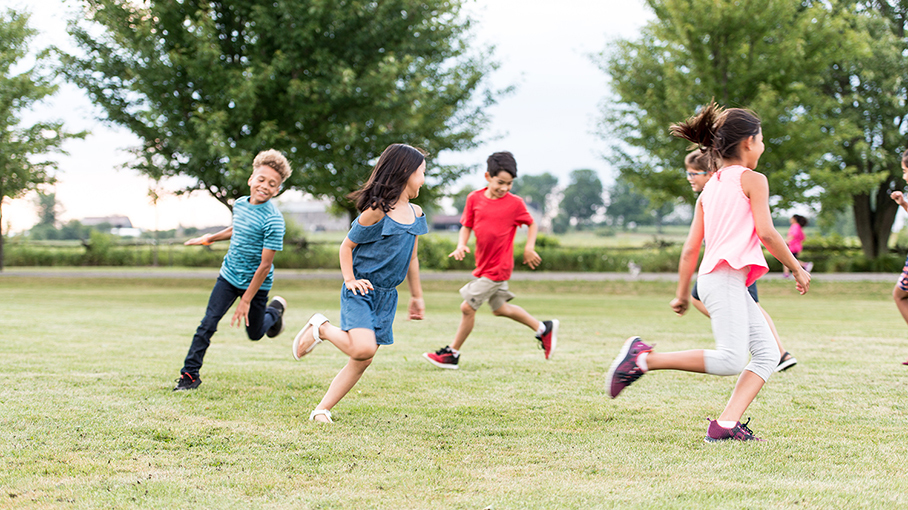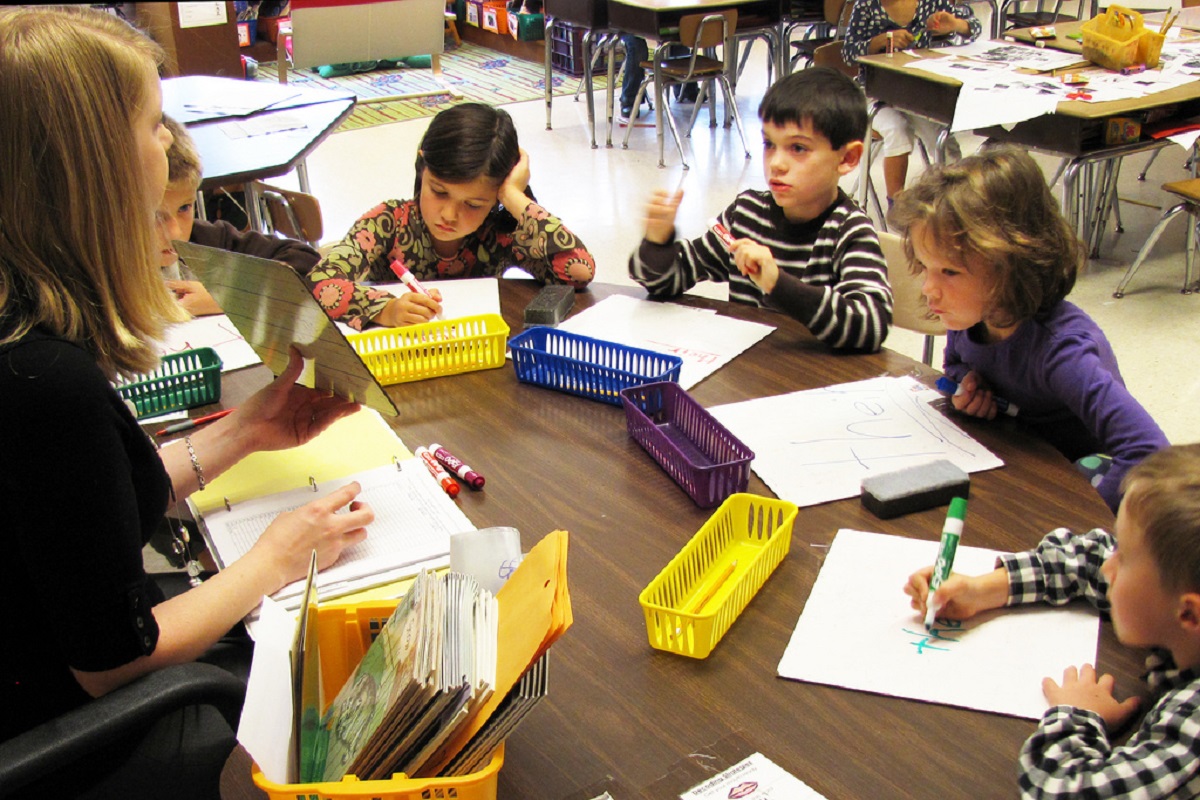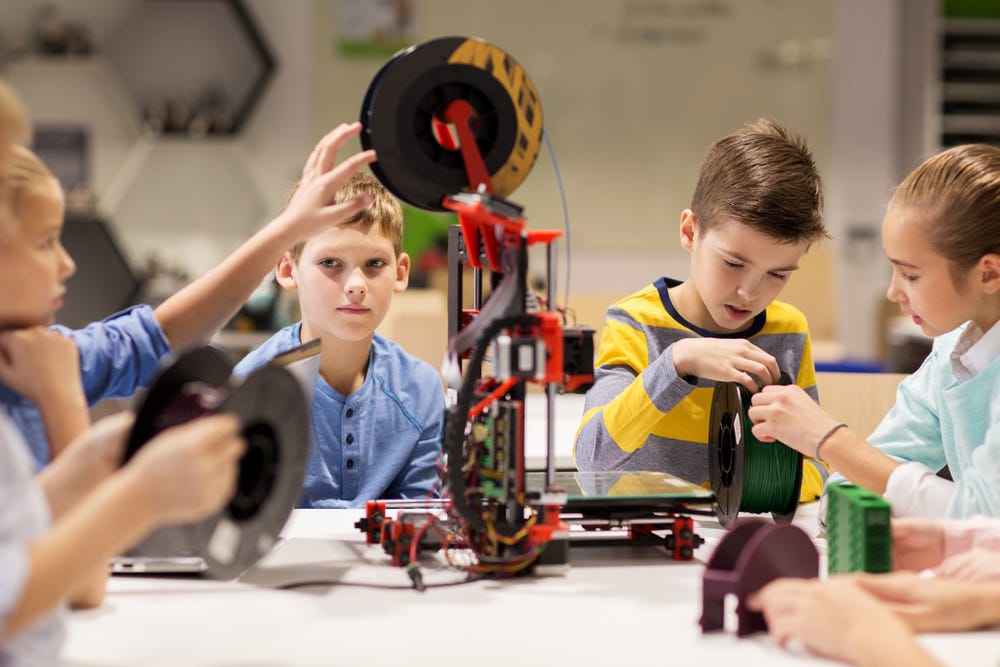Montessori Classrooms
Comprehensive Guide to Cooperative Play for Children
The stage of play known as cooperative play usually becomes apparent when children reach the age of four. During this developmental stage, children work together with their peers and engage in structured play. This form of play is the most intricate and advanced and is also the most prevalent form of play that people engage in throughout their lives. But, what motivates children to participate in cooperative play? What advantages does cooperative play offer? And what can parents, teachers, and caregivers glean from this type of play?
What Does Cooperative Play Look Like?
Cooperative play can be identified by children working together toward a common goal. This type of play involves sharing resources, taking turns, and communicating effectively with one another. Cooperative play can also involve negotiating and compromising to reach an agreement that satisfies everyone involved. Children engaged in cooperative play tend to be supportive of one another, and they work together to solve problems and complete tasks. This type of play promotes teamwork, social skills, and a sense of community among children.

It is a common misconception that once children enter the cooperative play stage, they possess all the necessary skills to engage in respectful, collaborative, and productive play. However, the truth is quite the opposite. The cooperative play marks the beginning of a new socialization phase for children. Prior stages of play, such as unoccupied play, solitary play, onlooker behavior, parallel play, and associative play, lay the groundwork for basic social skills, but children in the cooperative play stage will continue to develop and refine their social skills throughout their lives.
It is unrealistic to expect children who have just entered the cooperative play stage to possess sophisticated social skills, and it is natural for conflicts, growing pains, and hurt feelings to arise. Although it can be difficult to watch our children struggle, it is a necessary and healthy part of their development. Understanding this behavior is crucial as cooperative play is a significant developmental stage.
How is Cooperative Play Developmentally Beneficial?

The concept of cooperative play can be seen as a step in the progression of play development. Initially, children are focused on exploring their own physical and mental abilities. As they progress, they become more interested in their peers and start to interact with them. Finally, in the later stages of development, children explore collaborating and engaging in play activities with their peers.
During the associative play stage of development, children are at the initial phase of experimenting with playing together. However, when they enter the cooperative play phase, they engage in genuine collaborative play. This is the point where children start to explore games that require multiple players, fantasies that arise from the combined imaginations of the group, structured play with rules and guidelines that must be communicated to all participants, and games that involve participants taking on different roles.
At this stage, kids are absorbing a vast amount of fresh knowledge at a rapid pace. They are acquiring knowledge about communication, such as how to synchronize activities and motions with their peers, how to establish and uphold regulations and standards, and how to establish roles and leadership.
Children are in the process of acquiring skills to participate in intricate and collaborative tasks. They are in the process of assimilating and integrating information from various sources. They are also honing their abilities to troubleshoot and resolve disputes. The nature of play is multifaceted. This is why children need to progress through five developmental phases before they can engage in cooperative play.
As children progress into the cooperative stage of play, they embark on a lifelong journey of honing their social abilities. They will work on verbal and nonverbal communication, fine and gross motor abilities, social-emotional intelligence, teamwork, problem-solving, and a multitude of other crucial skills.
How can you facilitate your child’s learning through cooperative play?
The foundation of the Montessori approach lies in child development. As a result, parents and teachers who follow the Montessori method can leverage their knowledge of the stages of play to facilitate their children’s advancement.
In a mixed-age classroom, Montessori educators can utilize this understanding to group students purposefully, as well as to comprehend the learning that is occurring across various age clusters.
When children engage in play with peers at a similar level of development, they acquire distinct skills compared to playing with those who are either younger or older. While both types of interactions are beneficial, understanding the underlying reasons and methods is crucial. Moreover, preschool educators who follow Montessori principles can apply their comprehension of collaborative play to shape the structure and content of classroom stations and exercises.
As a parent, understanding the concept of cooperative play can guide your approach toward your child’s socialization and offer valuable information about their developmental requirements. When children participate in cooperative play, they acquire various skills that aid in their growth and development.
The skills of problem-solving and conflict resolution are likely to be the newest and least practiced by children. However, these areas are also the ones that can cause the most frustration during play. To assist your children, you can guide them in thinking through and practicing various responses to conflicts and setbacks.

As a parent or caregiver, you can support your child’s emotional development by introducing them to strategies that regulate their emotions. It’s crucial to focus on social-emotional learning at this stage of their life. You can begin by incorporating activities and habits that encourage your child to identify and manage their emotions. In doing so, they can remain calm and engaged in social settings without getting overwhelmed or upset.
Children may feel overwhelmed when first engaging in cooperative play, but with time you will observe their growing comfort and confidence while playing with their peers. This period is a thrilling phase that fosters profound learning and development.
